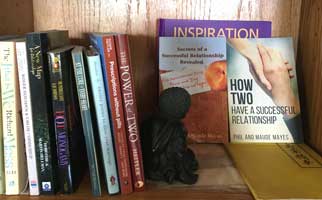Successful Relationship Reading Corner

In this week's blog we wrote about why diversity in your relationship is good. Here are thoughts from some others on this topic.
Embracing Diversity in Relationships "In this post, we will talk about the first two phases of a relationship. Phase one, which is all about unity, similarity, and harmony; and phase two, which is all about fostering and embracing diversity. We’ll do this by commenting on some song lyrics, a poem, and a parable."
Celebrate The Difference in Couple Relationships "Each person has their own Mary Poppins type bag full of tools to help them live their lives. When you meet that special someone and want to have a full on relationship with them, beware. They will have their own bag too, probably a different set from yours. This is what I call our adaptions to life."
When Differences Can Make Your Relationship Stronger The author describes losing a backpack, then writes: "What can explain the drastically different reactions that James and I had to this same shared experience? The answer is that we have different goal strategies, or what researchers refer to as “regulatory focus” In other words, even when we have the same goals, we frame those goals in very different ways."
|